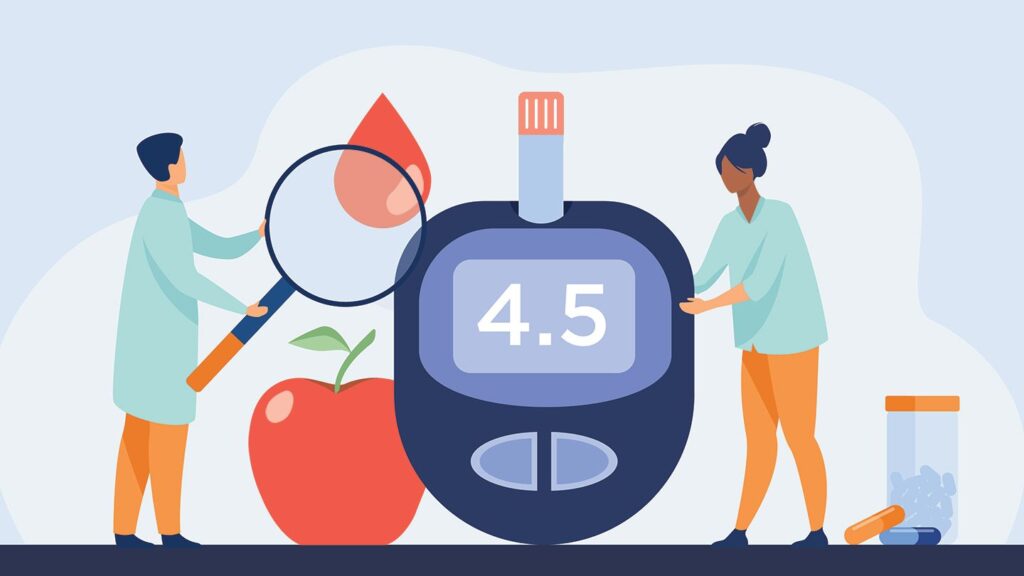
Diabetes affects more men than women, and some symptoms are specific to men. The following article will cover some of the most common symptoms and how they can be prevented or treated. You should also know about some of the risks of diabetes. If you have serious ED problem then you should try Kamagra 100mg for sale. These include increased risk of heart disease, damage to blood vessels and nerves, and low testosterone.
Increased risk of heart disease
Increased risk of heart disease when men have high blood sugar levels has been documented in the literature, but the findings have largely been conflicting. In fact, the studies used in this review found little evidence for a causal relationship. However, the authors did conclude that there is a positive association between blood sugar levels and cardiovascular disease, and the association seems to be nonlinear.
Heart disease and diabetes often go hand in hand. People with diabetes are twice as likely to develop a heart attack or a stroke than those without diabetes. However, even with proper management, people with diabetes still have a high risk of developing this ailment. As a result, people with diabetes should work closely with their healthcare provider to monitor their diabetes and make lifestyle changes that will minimize the risk of developing heart problems.
To determine the shape of the relationship between blood glucose levels and CVD, large cohort studies with extensive data collection are needed. These studies should include data from patients with a range of blood glucose levels to ensure that they capture the full extent of the risk. One recent overview reported a continuous association between glucose and CVD risk even when the highest blood glucose levels were excluded from the analysis. The study also found that the association remained at lower blood glucose levels than the usual “diabetic threshold” (5.3 mg/dl).
The study found that an increase in blood glucose levels is associated with an increased risk of coronary heart disease and total stroke. The risk remained constant until the study was adjusted for a number of confounders. In fact, a reduction of 1 mmol/l of fasting glucose was associated with a 21% reduction in the risk of IHD and stroke.
Damage to nerves and blood vessels
A man’s brain and blood vessels can become damaged when blood sugar levels rise too high, leading to diabetes. Fortunately, there are medications that can help with the symptoms of this condition, such as insulin and diabetes medicines. These treatments can reduce the symptoms and slow the progression of nerve damage. y
Diabetics can suffer from constipation, vaginal dryness, and orgasm problems. Their heart and blood vessels can become damaged as well, leading to high cholesterol and blood pressure. This condition can also lead to problems with blood flow to the feet and legs. Men with diabetes can also experience numbness and weakness and have difficulty erections.
Diabetic neuropathy affects the nervous system, which controls blood flow. Damage to these nerves prevents the body from adjusting blood pressure to its ideal level. As a result, blood pressure can rise and fall rapidly, resulting in lightheadedness or fainting. Men with diabetes may also experience digestive problems such as gastroparesis, or abdominal bloating. Damage to nerves and blood vessels can also affect the sex organs, causing men to experience erectile dysfunction and women to have difficulties in lubrication and arousal.
High blood glucose can damage the small blood vessels that supply the nerves and prevent essential nutrients from reaching them. Damaged nerve fibers can die, causing problems in many areas of the body. This condition affects nerves that carry messages to the brain. These nerves are usually in the feet and legs, but can also affect the hands and arms.
Low testosterone
Low testosterone is one of the causes of type 2 diabetes. The hormone is important for regulating glucose levels in the blood, and it helps the body’s cells increase glucose levels. However, when testosterone levels are low, the body becomes resistant to insulin, making it more difficult to break down sugar. This can lead to weight gain, obesity, and type 2 diabetes. Low testosterone can be treated by eating more foods high in vitamin D, or through a natural testosterone booster.
If your symptoms persist, seek medical attention. A doctor will often perform a physical examination, review your symptoms, and order specific tests. Some doctors may recommend testosterone replacement therapy (TRT) to treat low testosterone. This medication is usually effective within four to six weeks, and most men will see relief. Alternatively, you can try diet and exercise to increase testosterone levels.
A random survey of men with diabetes will show that half of them have low testosterone levels. In addition, testosterone performs many functions, including helping body tissues absorb sugar from the bloodstream. Because testosterone helps the body absorb insulin, it is important to have enough of it. When levels are low, your body is unable to fully absorb the glucose in the blood.
In a study of 356 men with type 2 diabetes, researchers discovered that testosterone replacement therapy improved glycemic control and insulin resistance in the men who received it. In addition, more than one-third of the men reached their target HbA1c levels. While this study was small, it could lead to further research to develop an effective treatment for type 2 diabetes.




